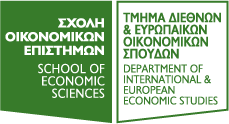History of Economic Theories
Georgios Manalis
Number of credits allocated: 6 ECTS Credits
Objective of the course
The objective of the course is to allow students to understand the way of genesis and evolution of economic theory. Emphasis is given to the historical character of economic theories and how the various socio-economic phenomena influence and shape the development of economic science. In this framework, various schools of thought are examined, trying to give answers both in classic subjects and in more modern issues. Through the evaluation of the historical development of economic thought, students will be expected to have developed their critical thought and their ability to understand various old and modern theoretical analyses.
Prerequisites: Basic knowledge of microeconomic and macroeconomic theory
Course contents
Ancient and medieval economic thought. Mercantilism and pre-classical economic authors. The Classical School of political economy: the protagonists and the moral philosophy of the classical system. The theories of value and distribution, the economic growth, and the monetary questions. Reaction and criticism – Marx and the socialistic economic thought. The marginal revolution and the neoclassical school. General equilibrium and social welfare. The evolution of monetary theory. The Keynesian revolution and its consequences. The economic role of the state. Economic justice and social choices. The evolution of macroeconomic theories.
Recommended reading
- Screpanti, E. and Zamagni S., History of Economic Thought, Tipothito: George Dardanos, Athens, 2004 (in Greek).
- Zoumpoulakis, Mylonakis,Patronis History of Economic Thought, Benou 2022
Teaching methods: Lectures
Assessment methods : Final written exam
Language of instruction: Greek





